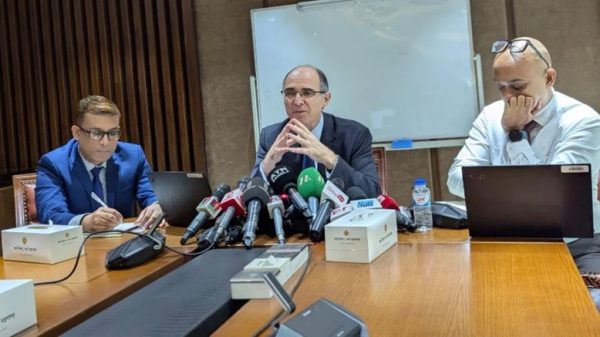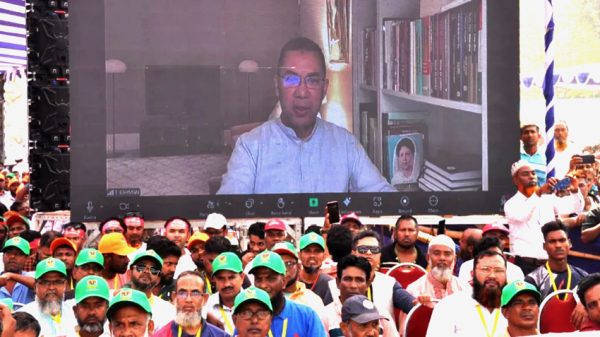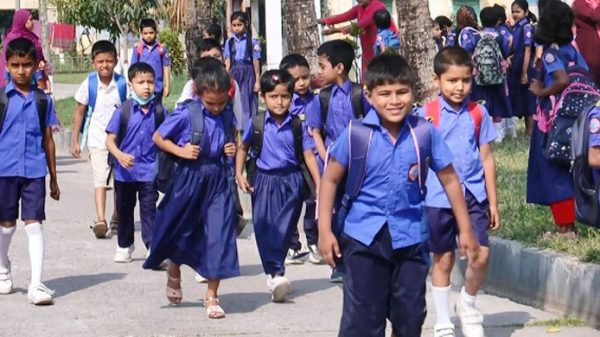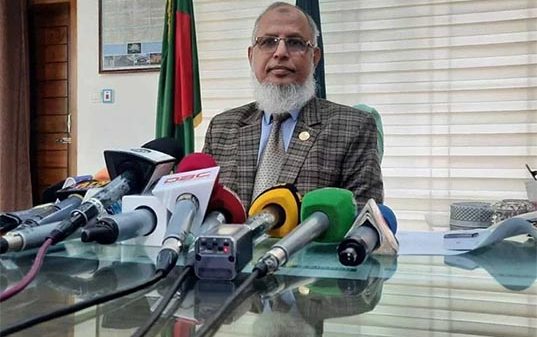Bangladesh’s economic scenario not promising, inflation still very high : IMF

- Update Time : Thursday, 19 December, 2024, 08:47 pm
- 20 Time View

Online Desk : Bangladesh’s economic scenario is not very promising. In spite of long efforts, inflation is not coming under control which is much beyond the understanding of the International Monetary Fund (IMF). It was stated by IMF Mission Chief to Bangladesh Chris Papageorgiou while speaking at a briefing at the Finance Division meeting room of the Ministry of Finance in Dhaka on Thursday. He said the IMF does not see inflation coming down in Bangladesh anytime soon. The IMF is very concerned about the current high inflationary pressure, he said. Papageorgiou said: “It comes from two parts. One is from the supply side. We think it’s coming from food inflation. There are structural issues that keep inflation high. Then there is the demand side, which is aggregated demand. However, inflation remains much higher than our expectations, hence, you have a picture of low growth. High inflation also puts additional pressure on the balance of payments on reserves.”
The IMF Mission Chief to Bangladesh advised the interim government to take effective measures to reduce commodity prices, remove tax exemptions, unnecessary expenditures, control money supply, make the exchange rate more flexible, and maintain the growth of foreign exchange reserves. “The scenario of what we are seeing is not promising. We are seeing economic growth slowing down. For example, growth reduced in our (IMF) projection for FY25. In our previous review, it was around 6.6% and now it’s only 3.8%. That is a big margin.” “When inflation slows the economy down, the banking sector is in distress. This is an area where the IMF has been very vocal, especially regarding non-performing loans — how they are recorded, how they are measured, and systematically even before the program. We know that these measures are biased output. Basically, the estimate should be much higher than what we were getting in the official numbers,” he said.
He also thinks that all this economic pressure is not for internal economic reasons. “A lot of the growth reduction we see is because of the disruptions during July and August, and also due to floods. During the IMF program, Bangladesh faced multiple shocks.” “When the program started, we didn’t have the effects of Russia’s war on Ukraine. That’s one. Second, we didn’t have the financial inflationary pressures. As we know, Bangladesh is importing a lot of its food and commodities. These shocks came one after the other.”
The IMF mission chief to Bangladesh further stated: “If you put everything together, it is a picture where Bangladesh used to grow at 7% with low inflation even in 2022. And now we are in a situation where it is slowing at 3.8%. The high inflation puts an extra pressure on the banking sector, which needs help.” The IMF Mission Chief also expressed concern about printing new notes and releasing those
into the market. However, the IMF believes the Bangladesh Bank governor, who said that they will quickly withdraw the money they released into the market.
“If the central bank doesn’t do so, inflation will increase further, which will further increase the suffering.” Papageorgiou also insisted on identifying non-performing loans accurately, implementing the current regulatory measures effectively, and creating a roadmap for restructuring the financial sector. The IMFMission chief said the fourth tranche of the International Monetary Fund (IMF)’s ongoing credit programme, amounting $645 million, is expected to be available by February 10. “The IMF will place the fourth tranche of the $4.7 billion loan to the board on February 5,” he said while speaking at a press briefing at the Finance Division conference room in the city.










